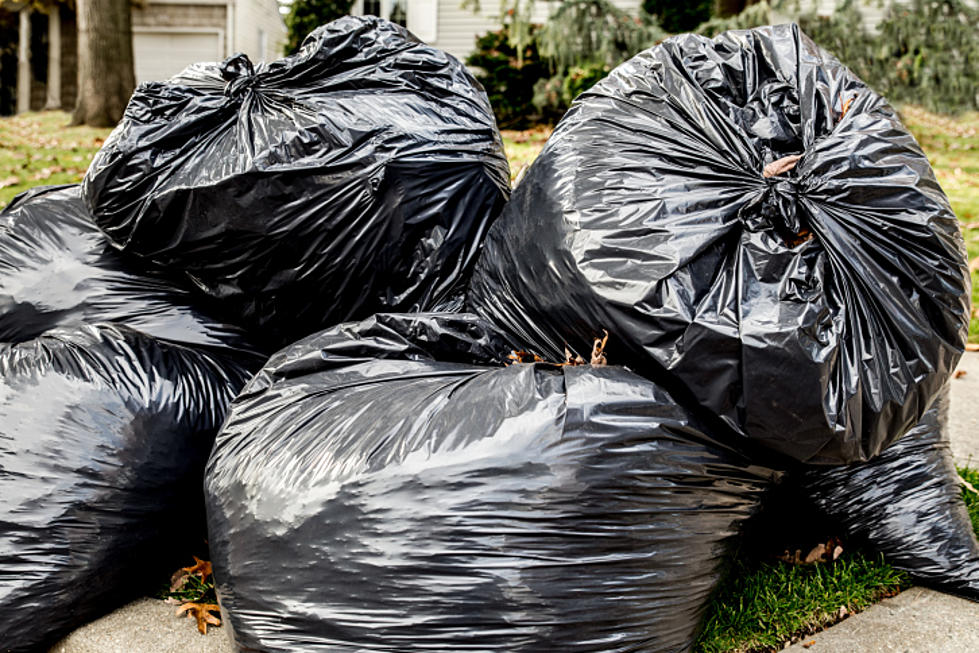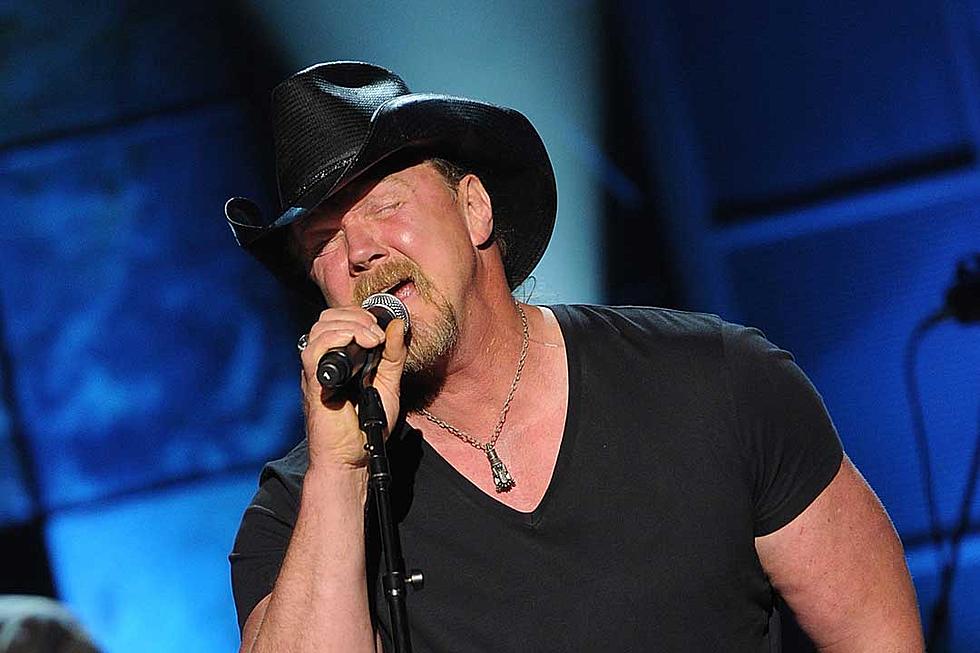
Interview: Joy Oladokun Tracks Her Journey to Self-Assuredness on New Album ‘In Defense of My Own Happiness’
Joy Oladokun would make an exceptional motivational speaker. She's soft-spoken in a way that prompts you to use your "inside voice" -- to lower your own vocal volume level to match her calmness. Just as she does in her songs, she offers up true-to-life stories and bits of wisdom thoughtfully and passionately, yet casually enough to turn an interview into more of a conversation.
In short, Oladokun is confident and self-assured — traits that shine through on her major-label debut album, In Defense of My Own Happiness — and unafraid of discussing her own struggles: as a Black, queer woman, as a first-generation American and the daughter of Nigerian immigrants, as a person who's simply lived through tumultuous times of both the personal and global variety.
"That self-assuredness is a new feeling — she's not an old friend," Oladokun admits in a video interview days before the Friday (June 4) release of her latest record. She seems a bit taken aback, in fact, by being described that way, even letting out a raspy giggle at the idea.
"Part of why I do what I do is, I want to become better ...," Oladokun explains. "I think that life has this sort of opportunity to spiral out, and you get to bloom and get opportunities to become better versions of yourself every day, and I think that the songs on this album are very much a reflection of me reaching and searching and wrestling with — and sort of becoming — a newer, better version of myself.
"I think that the process that this music brought me through brought me to self-assuredness," she adds, "but I was not as self-assured as a human when I first started writing the songs."
Indeed, In Defense of My Own Happiness opens with "Someone That I Used to Be," a profession from Oladokun that she's "having trouble giving grace / To every one of my mistakes ... Always so the worst in me," but also that she's "closer than I've ever been / To finding my own medicine / I'm healing this disease of mine / Looking at the face inside the mirror / With kinder eyes."
Across 14 songs, Oladokun brings listeners with her on the spiritual, emotional and geographical (the Delaware-born and Arizona-raised artist moved to Orange County, Calif., for college, then to Los Angeles, then to Nashville) journey she's taken, concluding with "Jordan." The song sees Oladokun find love and "building our own promised land / On this new ground we stand," though it dates back to 2016 or so, to around when she decided to start coming out to her family and friends.
"They all sort of have this little theme that you can hear of me just repeating, essentially, my yes — like, saying, 'Okay, I can be queer, I can be happy, I can have some sort of spirituality or faith, I can be safe, I can be an advocate, I can be advocated for," Oladokun muses. "A lot of that came through time and, like, life and watching the world to be the world.
"I love these songs because they're not perfect, but they're such a beautiful marker of the past five, six years of my life," she adds.
They're years during which Oladokun has renegotiated her relationships with both her family and her faith. "Let It Be Me" reflects the singer's complex relationship with her father, whom she describes as "one of the best people I've seen be a person ... gracious and kind," and similar to her in a lot of ways, but who "grew up in a country that told him that it's illegal to be gay — like, to this day, you get arrested and beat and hurt for being gay."
Its first verse is stunning in its heartbreaking depiction of Oladokun's childhood worries about her dad learning about her sexuality — she's known she is queer "since I was, like, eight," she says — and what that might mean for their relationship, but Oladokun stresses that the song is meant to be a "mixture of joy and grief that it turned out the way that it did, and that we both were willing to be patient and grow and expand." Sonically, the song nods to the band Genesis — Oladokun and her dad both love Phil Collins.
"Like, this past weekend, my girlfriend and I were in Arizona with my parents and stayed at their house, you know?" she shares, adding later, "This weekend, I saw — like, to be very frank — the man who said he probably wouldn't come to my wedding sit in the kitchen and talk to my girlfriend about pocketknives ...
"Even though our relationship has been complex at times, he's my hero. I know other Nigerian dads with queer daughters that they do not talk to, and so the fact that he was willing to challenge his lifetime of beliefs — I'm always gonna honor that in any type of person I see, and it's super cool that that person is my dad," Oladokun continues. "So our relationship is good, even though it can be, like, tense and scary, because I know that he's still actively working on accepting and being at peace with me being gay, and he's doing a really good job, and I'm really proud of him."
"Sunday," meanwhile — one of two songs to appear on both In Defense of My Own Happiness and 2020's In Defense of My Own Happiness (The Beginnings) — examines Oladokun's "ever-expanding" faith. She spent nearly six years as a full-time employee of a local church before quitting and coming out.
"I f--king love Jesus. I don't know a person on the planet that would hear a story about, like, someone who challenged organized religion and our ideas of inclusivity — like, I don't know anybody who would hear about Jesus and not be down," Oladokun says, her voice more emphatic than it's been during the whole interview.
However, she clarifies, she's been working on expanding from her Christian upbringing, learning about other religions, meditating and pulling from the examples set by those who came before her. Richard Rohr's Falling Upward, she says, gave her a good perspective on growing in her faith as an adult.
"I still do model who I am and how I act, sort of, after everything I think Jesus would be doing if he was here. And I think that's the gift of forefathers and foremothers — just having these individuals and people who lived remarkable lives that you can look at and be like, 'This is what I would do, this is what I wouldn't do,' or 'This is what is possible.'"
It's that worldview that shines through with Oladokun discusses what she hopes to do with her fame, which has grown thanks in part to placements on the hit TV shows This Is Us and Grey's Anatomy. She recently earned an Emerging Act of the Year nomination at the 2021 Americana Honors & Awards, and has a number of major festival spots and shows with Jason Isbell & the 400 Unit on her concert calendar for the year.
"I don't know that I got into this job to be a rockstar," she admits. Instead, she wants to find what's missing in the cultural landscape and fill that void.
"I think it's important to have a 'why' ... It makes it easier when some dude named Tim893 comments on your YouTube, 'You suck at guitar,'" she says. "Because if I'm just doing this to be heard, that stuff will send me into a spiral. But if I'm doing this because I have a mission — like, I want to help people. I want to help myself! — and so, I hold onto that pretty hard, because I think it helps me when people are dumb and times are hard, you know?"
Right now, coming out of the COVID-19 pandemic, that "why" is mental health. "Everybody's still talking about how we baked bread and learned how to cross-stitch. Nobody's talking about how tough it might have been to be inside with your partner for a year, not see your parents for a year, watch the death toll of a global pandemic roll up every single day and wonder what your part in it was going to be," Oladokun says, letting out a deep sigh.
To be clear, it's still something she's figuring out herself. Oladokun shares that she goes to therapy twice a week — watching your career rise while the world grapples with a global tragedy can mess with you.
"Also, like, my parents are immigrants, so sometimes I will have — survivor's guilt is the wrong thing, but seeing what my cousins or people I know have to overcome versus what I've had to overcome — all hard things, but I'm really blessed, and I think, sometimes, there's a little bit of, like, 'Why do I get this?'" Oladokun explains. "And I've been trying to reframe it as, like, 'If I get this, what can I do with it for myself and for others?'
"Truly, I am your least-impressive friend from high school," she continues with a chuckle, "and if Spotify can give a s--t enough to put me on a billboard ... I try to talk about retaining my humanity with my teams a lot, because I do want it to be a sense of, like, I'm not a rockstar. I love David Bowie, but I'm not David Bowie.
"I'm just a human that, songs really help me," Oladokun adds, "and at this moment, my songs really seem to be helping other people, and so I try to hold onto that."
A Brief History of Queer Country Music:
More From KLAW-FM
![Kalie Shorr’s Emotional Cover of the Chicks’ ‘Cowboy Take Me Away’ Is Haunting [Listen]](http://townsquare.media/site/204/files/2021/06/kalie-shorr-the-chiks-cowboy-take-me-away.jpg?w=980&q=75)









